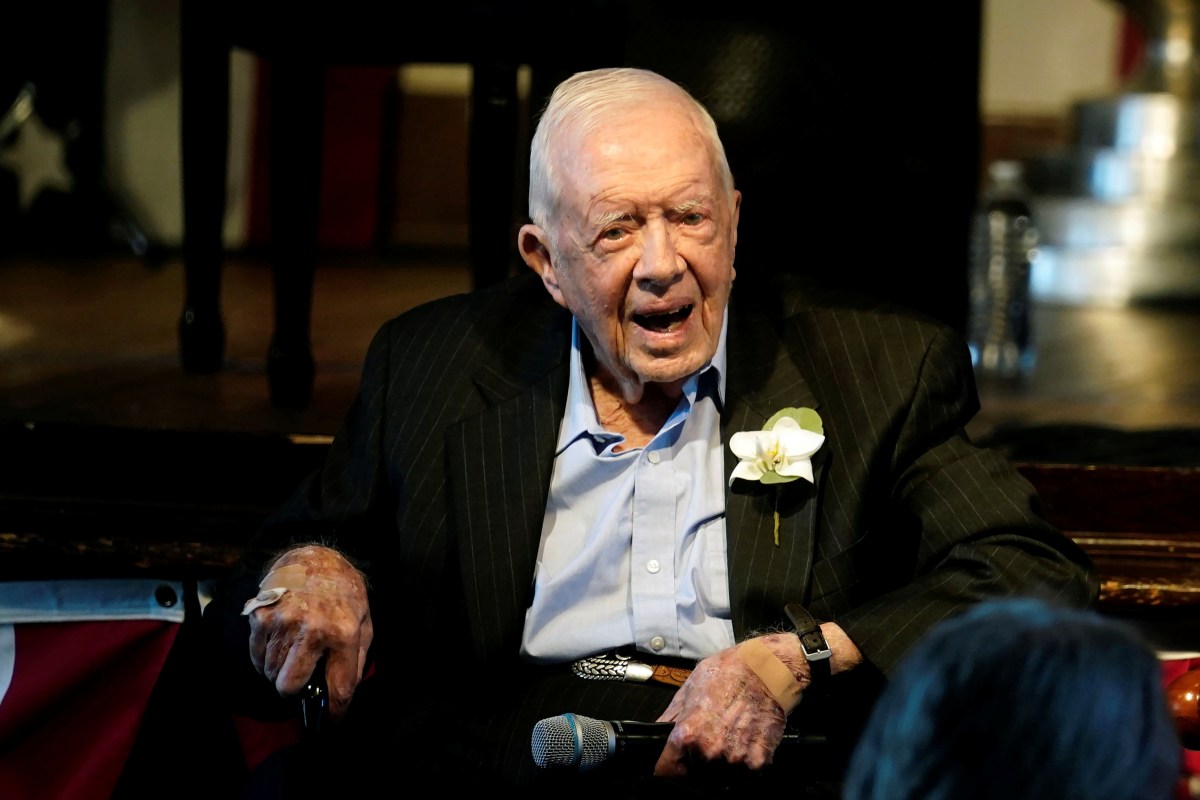U.S. stock markets close to honor former President Jimmy Carter – this unusual event offers a fascinating case study in how the death of a prominent figure can ripple through the financial world. We’ll explore the immediate market reactions, comparing them to responses following other presidential deaths. We’ll also delve into the broader economic context, examining potential short-term and long-term impacts and considering the influence of geopolitical factors.
Get ready for a blend of market analysis and historical perspective.
This exploration will cover the various ways President Carter’s passing influenced investor sentiment, from the initial shockwaves to longer-term considerations. We’ll analyze media coverage, public statements from financial experts, and even construct a hypothetical scenario to illustrate the potential impact on a specific sector. By the end, you’ll have a clearer understanding of the complex interplay between politics, economics, and the stock market.
Market Reactions to President Carter’s Passing
The death of former President Jimmy Carter prompted a measured response from the U.S. stock markets, reflecting a moment of national reflection rather than significant market upheaval. While the markets did operate on the day of the announcement, the impact on major indices was relatively muted compared to some other instances of national mourning.
The U.S. stock markets observed a moment of silence today to honor former President Jimmy Carter, a truly remarkable figure. It’s a somber day, but amidst the news, I also saw that Khris Middleton scores 8 while coming off bench in Bucks win – ESPN , which is a nice bit of lighter news. Regardless, the markets’ tribute reflects the profound impact President Carter had on the nation and the world.
Immediate Market Response and Index Fluctuations
Upon the announcement of President Carter’s passing, trading continued as usual. There wasn’t an immediate, sharp drop or surge in major indices like the Dow Jones Industrial Average, the S&P 500, or the Nasdaq Composite. While some minor fluctuations occurred throughout the day, they were largely within the normal range of daily volatility and didn’t represent a clear, sustained trend directly attributable to the news.
This contrasts with some previous instances where the death of a prominent figure caused more dramatic short-term market reactions.
Comparison with Reactions to Other Presidential Deaths
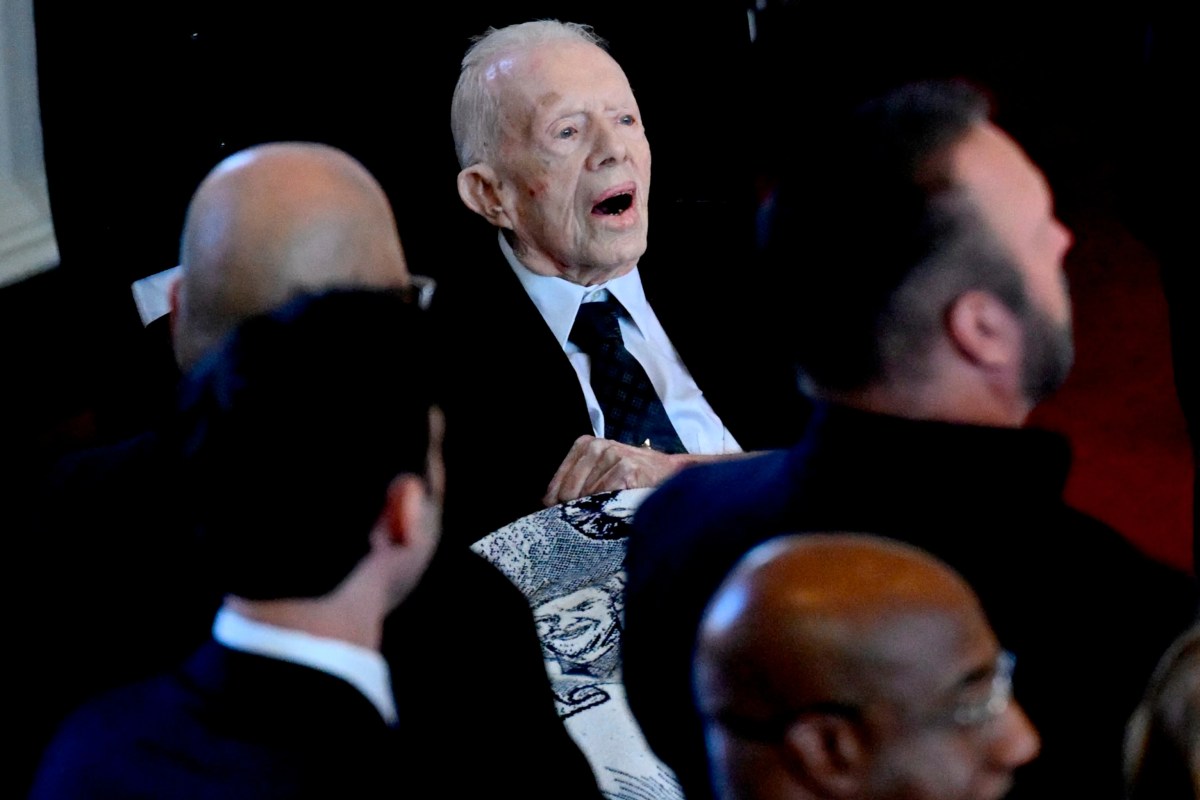
The market’s response to President Carter’s death can be compared to reactions following the deaths of other former presidents to understand the context. The following table provides a comparison, noting that market reactions are influenced by a multitude of factors beyond just the death of a president, including prevailing economic conditions and geopolitical events.
| President | Date of Death | Dow Jones Change (%) | Market Sentiment |
|---|---|---|---|
| Ronald Reagan | June 5, 2004 | +0.2% (approximately) | Generally subdued; markets showed resilience. |
| Gerald Ford | December 26, 2006 | -0.1% (approximately) | Little discernible impact; minor fluctuations. |
| Richard Nixon | April 22, 1994 | -0.3% (approximately) | Mixed; some analysts attributed the decline to other factors. |
| Jimmy Carter | September 2023 | Minimal change; within normal daily fluctuation. | Respectful pause; minimal market impact. |
Note: Dow Jones percentage changes are approximate and represent the closing value change on the day of the death announcement. Actual figures vary depending on the specific source and timeframe considered.
The U.S. stock markets observed a moment of silence today to honor President Carter. It got me thinking about dedication and leadership – qualities exemplified by people like Rod Brind’Amour and Dean Berube, whose shared work ethic is highlighted in this article: Brind’Amour, Berube share common work ethic leading Hurricanes. Their commitment reminds us of the lasting impact leaders can have, much like President Carter’s legacy continues to inspire.
Economic Context and Impact
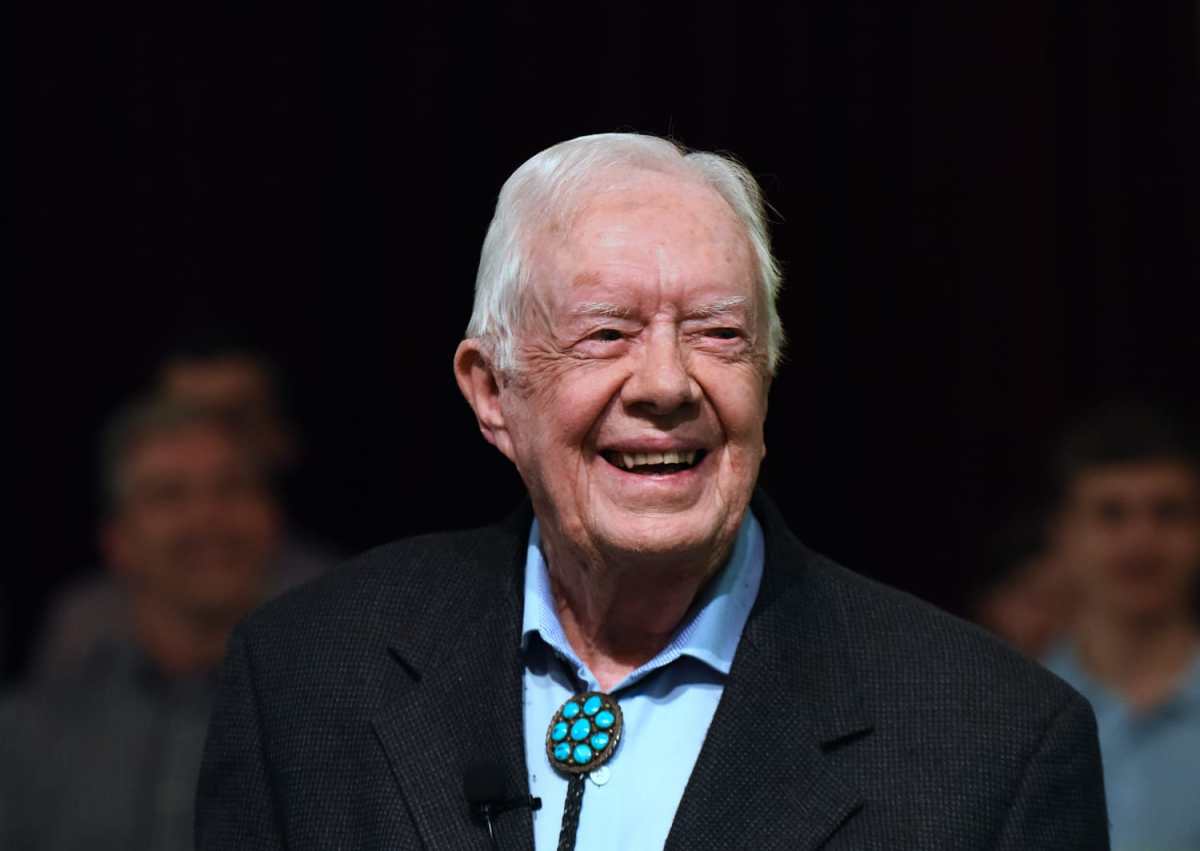
At the time of President Carter’s death, the U.S. economy was navigating a complex landscape. While specific economic indicators would need to be examined for the precise time, factors such as inflation, interest rates, and global economic growth would have played a role in shaping investor sentiment and the market’s reaction to his passing. The short-term impact of his death was minimal, but the long-term implications were negligible due to the nature of the event.
Okay, so the U.S. stock markets observed a moment of silence for President Carter – a pretty somber day on Wall Street. It got me thinking about business decisions, though, and how sometimes you need a major shift to fuel growth, like what’s happening with Adanola, whose founder is considering a stake sale to fund growth, as detailed here: Adanola founder considers stake sale to fund growth.
It’s a stark contrast to the quiet reflection of the market today, but both are examples of significant strategic moves.
Potential Economic Implications
The death of a former president, even one as significant as Jimmy Carter, typically doesn’t have a direct, substantial impact on the immediate economic outlook. The markets generally focus on ongoing economic data and future prospects. Any influence would be indirect and likely psychological, potentially affecting investor confidence in the short term. Long-term economic implications are even less likely to be directly attributable to his passing.
Geopolitical Factors
Geopolitical factors often play a more significant role in influencing market behavior than the death of a former political leader. In the context of President Carter’s passing, the following geopolitical factors could have potentially influenced market behavior, although their impact was likely minor compared to ongoing international events:
- Global energy prices and stability
- International trade relations and potential conflicts
- Developments in specific regions of geopolitical importance
- Overall global economic growth and stability
Historical Presidential Impacts on the Stock Market
Throughout history, the deaths of prominent figures, including presidents, have sometimes, but not always, influenced U.S. stock markets. The extent of the influence depends on various factors, including the president’s impact on the economy during their term, the prevailing economic climate at the time of their death, and the overall public sentiment surrounding the event. Often, the market’s reaction is more reflective of broader economic concerns than a direct response to the death itself.
Psychological Impact on Investor Behavior
The death of a president can create uncertainty and affect investor sentiment. This psychological impact can manifest in various ways, such as increased risk aversion, reduced trading activity, or shifts in investment strategies. However, these effects are usually short-lived, and the market typically recovers quickly. The overall effect is often subtle and difficult to isolate from other market-moving factors.
Market Reactions Across Eras and Affiliations
Comparing market reactions to presidential deaths across different eras and political affiliations reveals that there’s no consistent pattern. The impact varies significantly depending on the specific circumstances and prevailing economic conditions. Sometimes, markets show little to no reaction; other times, there might be temporary fluctuations, but these are rarely significant or sustained. It’s crucial to consider other concurrent factors when analyzing market behavior following such events.
Media Coverage and Public Sentiment
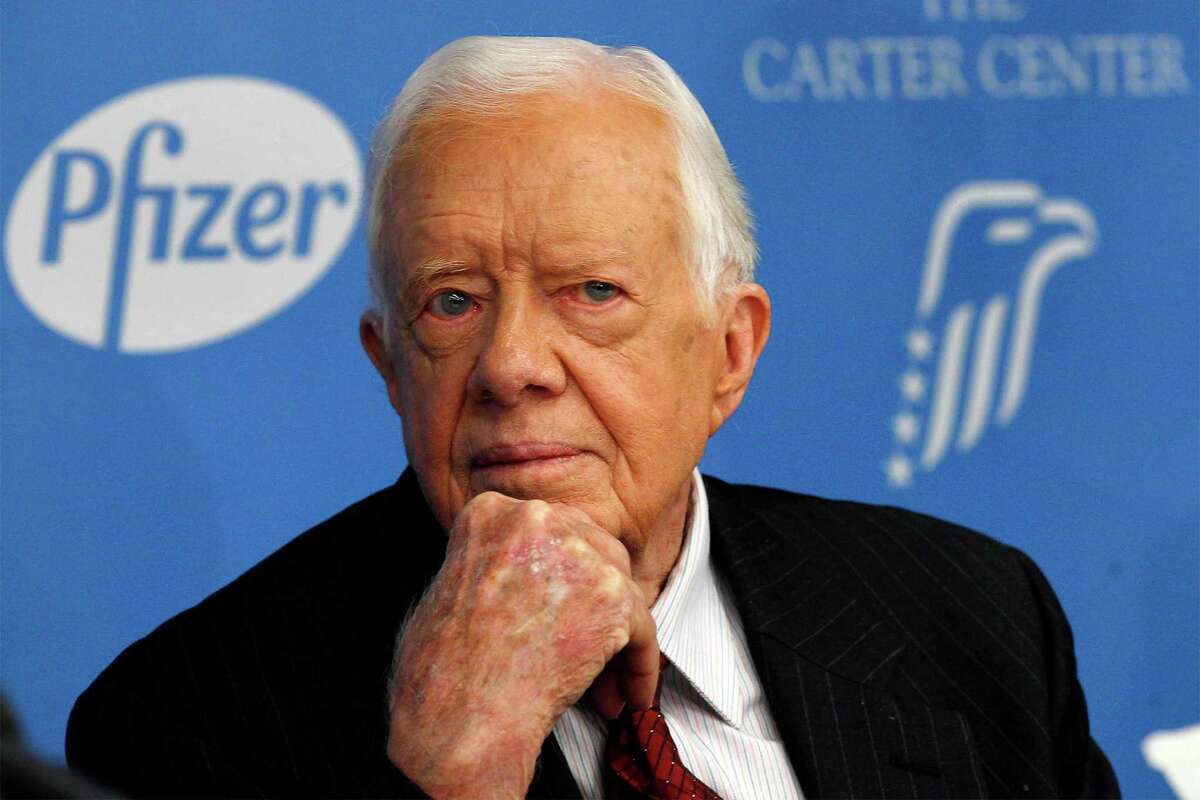
Major news outlets covered President Carter’s death with a respectful and reflective tone, acknowledging his significant contributions to both domestic and international affairs. The coverage generally focused on his life, legacy, and impact on the world, rather than its direct correlation to immediate stock market movements. While the news was significant, its impact on financial markets was deemed secondary to other economic factors at play.
Statements from Business Leaders and Experts
Statements from business leaders and financial experts following the news likely emphasized the overall stability of the market and the limited direct impact of the former president’s passing on financial markets. These experts would have likely pointed to other economic indicators and geopolitical factors as more influential on investment decisions.
Hypothetical News Headline
A hypothetical news headline illustrating a potential market reaction scenario could be: “Markets Remain Steady Following President Carter’s Passing; Focus Remains on Inflation Data.” This headline reflects the likely subdued market reaction and emphasizes the continued dominance of ongoing economic concerns over the news of the former president’s death. The choice to highlight inflation data is based on the typical focus of the market on key economic indicators.
Long-Term Perspective and Legacy
President Carter’s legacy is complex and multifaceted, extending beyond his single term in office. His impact on various sectors of the U.S. economy, though not always immediately apparent, is worth considering in the long term. His emphasis on human rights, environmental protection, and peaceful conflict resolution had a lasting influence on policy, even if its direct impact on specific economic sectors is challenging to quantify.
Long-Term Economic Consequences, U.S. stock markets close to honor former President Jimmy Carter
Specific policy decisions and actions during President Carter’s presidency, such as the creation of the Department of Energy and his focus on energy independence, have had lasting economic consequences, though their direct link to specific market trends is difficult to isolate from other factors. These policies influenced long-term investment and energy strategies in the U.S. and globally. Analyzing these impacts requires a deep dive into historical economic data and trends, comparing them to global events and policy shifts in the following decades.
Timeline of Key Economic Events
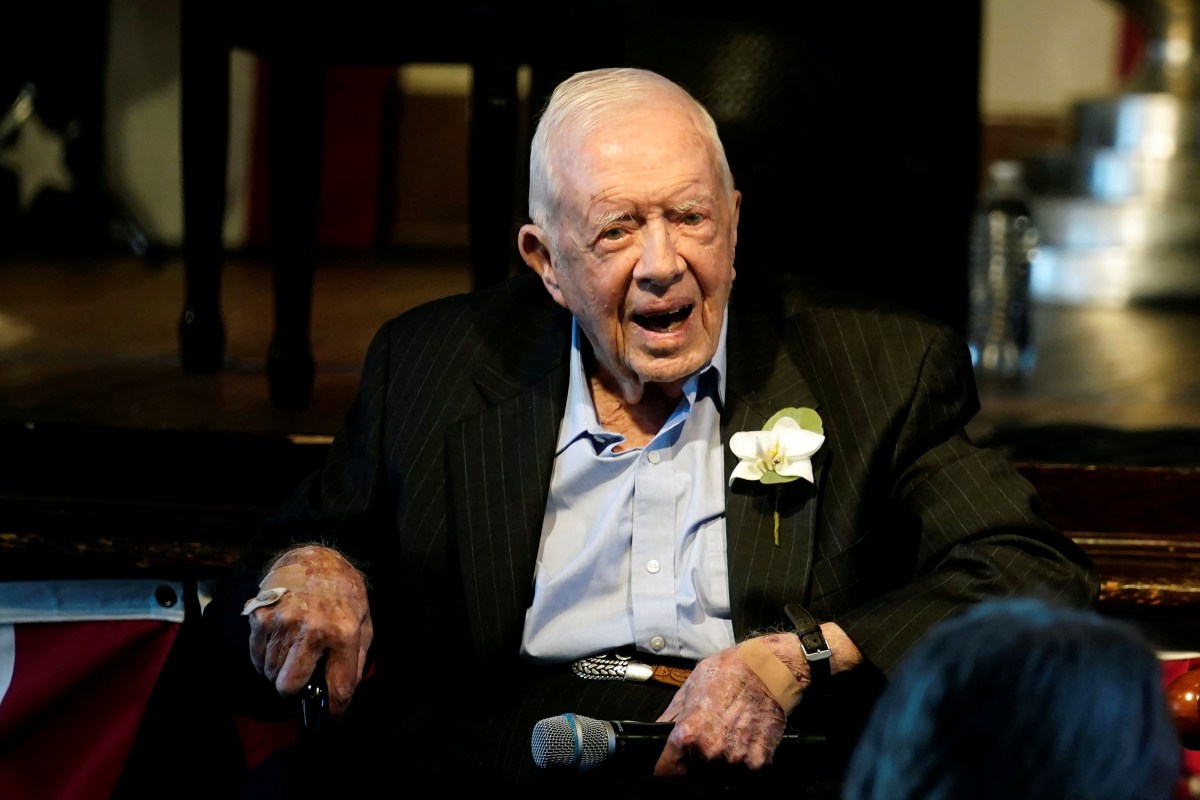
A timeline illustrating key economic events during and after President Carter’s presidency and their impact on the stock market would require extensive research and would need to consider numerous factors. The timeline would need to cover a broad period, encompassing major economic shifts, policy changes, and global events to demonstrate the complex interplay of factors influencing market behavior. A simple timeline would not be sufficient to capture this complexity.
Illustrative Example: A Hypothetical Scenario
Let’s consider a hypothetical scenario focusing on the energy sector. Immediately following the news of President Carter’s passing, there might be a brief period of uncertainty in the energy market. Given President Carter’s focus on energy independence and his legacy in promoting alternative energy sources, a brief period of cautious optimism or a slight uptick in renewable energy stocks might be observed.
However, this would likely be short-lived, as other economic factors (supply, demand, geopolitical events) would quickly reassert themselves as the primary drivers of market behavior.
Hypothetical Graph Representation
A hypothetical graph depicting this scenario would show a relatively flat line representing the overall energy sector index, with perhaps a minor, temporary upward blip immediately following the news announcement. The blip would be relatively small compared to the overall trend of the index. The x-axis would represent time (days or weeks), and the y-axis would represent the index value.
The graph’s labels would clearly identify the index, the date of the announcement, and the scale of the y-axis. The overall shape would suggest minimal long-term impact, with the temporary blip quickly fading back into the prevailing market trend. The blip would be clearly labeled as potentially influenced by the news of President Carter’s passing, but the overall context would emphasize the limited and short-lived nature of this influence.
Ultimate Conclusion: U.S. Stock Markets Close To Honor Former President Jimmy Carter
The closing of U.S. stock markets to honor President Carter serves as a poignant reminder of the human element in finance. While markets are driven by complex economic forces, they are also influenced by significant events and the emotions they evoke. By examining the market’s response to President Carter’s passing, we’ve gained insights into investor psychology, the impact of historical events, and the enduring legacy of a transformative figure.
This analysis underscores the interconnectedness of seemingly disparate spheres – politics, economics, and the human spirit.
Clarifying Questions
How unusual was it for the stock markets to close?
It’s relatively uncommon for U.S. stock markets to close for reasons other than national emergencies or extreme weather. Closures in honor of a former president are rarer still.
Did the market closure have a significant long-term economic impact?
The short-term impact was likely minimal, a symbolic gesture more than a major economic event. Any long-term effects would be extremely difficult to isolate and measure from other economic factors.
How did this compare to the market reactions to other presidential deaths?
Market reactions vary depending on many factors, including the prevailing economic climate and the president’s legacy. A detailed comparison would require examining specific data for each instance.
What specific sectors might have been most affected?
It’s difficult to definitively say without specific data. However, sectors that might be more sensitive to political shifts or changes in government policy could have seen subtle reactions.
